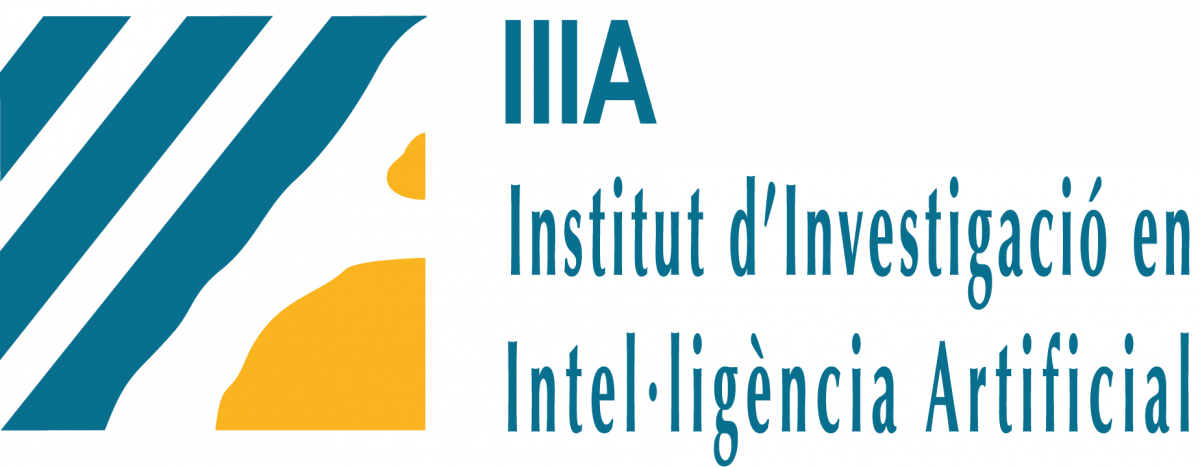DEALigently: LLM-based Agents for Negotiation and Auctions
Funded by: CSIC / Tecnológico de Monterrey, Grant Number BITEC24010
Duration: 01/01/2025 - 31/12/2026
Total budget: € 36,600.00
The goal of DEALigently is to explore the use of Large Language Models to train agents for automated negotiations and auctions.
LOGISTAR: Enhanced Data Management Techniques for Real-Time Logistics Planning and Scheduling
https://logistar-project.eu/
Funded by: the European Commission, H2020, Grant number 769142
Duration: 2018 - 2021
Total budget: € 4,997,548.75
LOGISTAR is aimed at allowing effective planning and optimizing of transport operations in the supply chain by taking advantage of horizontal collaboration relying on the increasingly real-time data gathered from the interconnected environment.
For this, a real-time decision-making tool and a real-time visualization tool of freight transport will be developed, with the purpose of delivering information and services to the various agents involved in the logistic supply chain, i.e. freight transport operators, their clients, industries and other stakeholders such as warehouse or infrastructure managers.
PRAISE: Practice and peRformance Analysis Inspiring Social Education
https://www.iiia.csic.es/praise/
Funded by: the European Commission, FP7, Grant number 388770
Duration: 2012 - 2015
Total budget: € 3,365,977
PRAISE is a social network for music education with tools for giving and receiving feedback. It aims to widen access to music education and make learning music more accessible and more social.
At its heart PRAISE will provide a supportive, social environment using the latest techniques in social networks, online community building, intelligent personal agents and audio and gesture analysis.
Any member of any community can post audio to any community for which they are a member and ask for specific kinds of feedback on various regions of that audio. Any community member can respond with text, or with other audio to emphasize a particular point about style or performance for example.
ACE: Autonomic Software Engineering for Online Cultural Experiences
https://www.iiia.csic.es/ace/
Funded by: the European framework ERA-Net CHIST-ERA, contract CHRI-001-03
Duration: 2011 - 2013
Total budget: € 500,000
Personal Research Projects
Automated Negotiations for General Game Playing
One of my goals is to combine the field of Automated Negotiations with the field of General Game Playing
More specifically, I am developing algorithms that are able to play games and, while playing these games, are capable of negotiating their strategies with their opponents. Writing a negotiation algorithm for such a domain is more complex than for traditional negotiation domains, because one needs to apply Game Theoretical reasoning and Logic to assess the value of any potential proposal.
Furthermore, these algorithms need to be completely domain independent because the rules of the game are only known at runtime. This means that no game-specific heuristics can be applied.
You can download my presentation given at ACAN 2016 here: presentation (right-click, save link as).
BANDANA
https://www.iiia.csic.es/~davedejonge/bandana/.
BAsic eNvironment for Diplomacy playing Automated Negotiating Agents. This is a new framework for the development of negotiating agents for the game of Diplomacy. It is based on the DipGame framework, but it provides an alternative negotiation server with a simplified negotiation language.Furthermore, it contains the D-Brane agent with which I won the ICGA Computer Diplomacy Challenge 2015, and it provides the possibility to implement a negotiation algorithm on top of the tactical component of D-Brane. This makes it a lot easier to do research on Automated Negotiations, since you can focus on the negotiation algorithm without have to worry about the other aspects of the game. Moreover, it allows researchers to compare their negotiation algorithms independent of the underlying tactical algorithm.
You can find a YouTube video of my presentation given at AAMAS 2016 about the potential use of Diplomacy for the ANAC 2017 competition here: https://youtu.be/lFotq6xRFbY
.
NB3: Multilateral Negotiations in Large Agreement Spaces
https://www.iiia.csic.es/~davedejonge/nb3
I am developing an algorithm that is able to perform automated multilateral negotiations under hard and realistic circumstances:- The number of agents involved in the negotiations is larger than 2.
- Agents are completely selfish.
- The other agents are unknown, cannot be trusted and can be either human or software agents.
- Utility is defined as a non-linear function or only as a preference relation.
- Calculating the utility of an offer is hard and time consuming.
- The space of possible agreements is extremely large.
- Time is limited, so an exhaustive search is unfeasible.
- The negotiation protocol is a free as possible: agents are allowed to make, accept and reject offers at anytime and are always allowed to remain silent.
SIMPLE: SIMple Protocol LanguagE
The Simple Protocol Language is a language that allows ordinary people to define protocols, without having any technical knowledge of mathematics, logic or programming. Although it looks very similar to natural language it is in fact a programming language with strict syntax.
Apart from defining the language, I have implemented an editor that allows people to easily define such protocols, a user interface that allows users to run institutions based on their protocols, and an interpreter that enforces that the protocol is indeed obeyed. All of these are available online and anyone who is interested is welcome to try them out.

